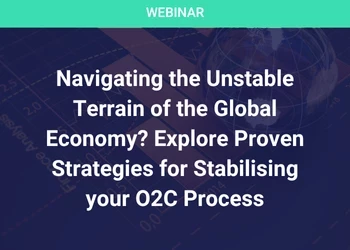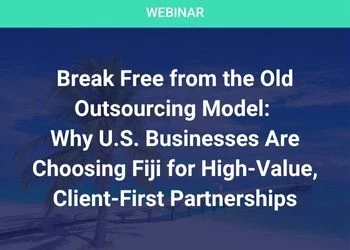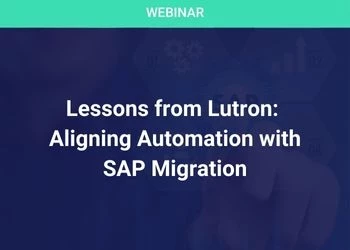Global Leader SYKES thrives in Edinburgh
Add bookmark*View content in - Scotland: Shared Services & Outsourcing Series
Sykes is a global leader in outsourced customer contact management solutions and handles over half-a-million transactions a day on behalf of Fortune 1000 companies. The company was formed in 1977 and has been based in Edinburgh, where 700 people are currently employed, since 1995. In this interview Les Torrence, Regional Director Operations, UK, Ireland & CPS, Sykes Global Services Ltd explains how Scottish Development International assisted in raising SYKES’ profile.
SSON: I’d like to start by asking you to give us an overview of the work SYKES is currently doing in Scotland, and a little bit of history as to when your services were set up there?
Les Torrance: SYKES acquired a company called McQueen’s in 1997 as part of their acquisition trail into Europe. It was the second location that they acquired, with Amsterdam being the first step into Europe, followed very closely by the Edinburgh operation.
The Edinburgh operation is a pan-European centre, which specialises in multi-lingual, multi-channel - that’s web, voice, email, letter and chat across the areas of customer care, technical support, telemarketing, financial reconciliation services and our fulfilment services to both the B2B and B2C markets.
SSON: Can you describe the services that you’re currently offering your clients? I know you’re a confidential company, and you don’t give client names or identities, but perhaps you could give us an overview of the services that you’re offering them?
LT: Services - we have a broad range of customers or clients. SYKES as a company started up very much in the technical support arena. It’s certainly branched now across more verticals than just the technical support arena, and covers the Communications, Financial Services, Healthcare as well as the Technology verticals. From Edinburgh the services which we provide range from Customer Service, Technical Support, Service after Sales, Telemarketing and Inbound sales. We are currently providing these services in 15 languages across 20 countries, and have the unique capability of managing the full end to end process in order management. So that will be in terms of someone calling in and wishing to make a purchase of a product, where we will place the order, process the payment in multi-currency and multi-payment methods. We can pick, pack and ship that product to anywhere in Europe from our facility here in Scotland. So it is a full end-to-end potential solution.
In providing the Customer Care service this can range from pre-order, pre-purchase enquiries to post-purchase enquiries, such as, ‘I’ve got the product or can I get the product? Where I can find it and what does it do?’ - We provide basic troubleshooting, diagnostics, leading into full technical support, so fixing problems consumers may have in new or existing products, where they’re not getting it to do what they want it to do. It could be a full technical product, or it could be fast moving consumer goods that they’ve purchased which they need assistance with.
Technical support can range from level one support, right up to technical support level three and four. We will also interface with our clients, where an issue may need to be resolved, we’ll manage the escalation. In cases where there is a fault with the product which cannot be resolved over the phone we will arrange for the product to be collected for repair and manage the repair cycle process. So if somebody buys a product and there is a genuine fault with it, we will arrange for that to be delivered to the repair centre, maybe via a courier collection, maybe a drop-off point, or even for a technician to do a home visit, and then manage their expectation of how long that repair cycle’s going to take until it gets back to the client. So we’ll manage that interface between the client and the consumer and the repair centre.
I touched briefly on financial reconciliation services earlier. That is where we have a back office team, who will take payments on behalf of a client, which gives us a fully flexible function to be able to place orders. It could be in-warranty or out-of-warranty payments or taking a new order. We can process them in multi-currency and multi-payment methods. Then we will reconcile these payments and the VAT back to the client. This is provided across Europe for many of our clients, again based out of our Edinburgh facility.
Also, if you take it from an e-commerce perspective, if our clients have e-commerce platforms, we can again integrate into their systems, processing the orders that are placed on the web. Whilst processing the payments we can also do fraud risk management, where we can set up a scoring mechanism that helps to prevent online fraud.
SSON: SYKES is an American company, why did the organisation itself decide to set up in Scotland? What were the reasons for putting a base there?
LT: SYKES were very keen to move into Europe, I mentioned that Amsterdam was literally the first country that they moved into. Very quickly they were also looking to see where they could get highly skilled multi-lingual agents. Keep in mind that in the early days it was very much a technical support-driven company, so they were looking for people with the technical skills and the customer service skills; the other thing they were looking for was a pan-European hub, where they could get the multi-lingual skills as well.
They looked in Scotland, and they looked at Edinburgh primarily as being a very cosmopolitan city in terms of a large catchment of university-educated and higher-degree educated people, but also cosmopolitan in the spread of multi-national people. Edinburgh and Scotland was chosen, basically, for the customer care skills that are renowned in Scotland. Edinburgh was chosen primarily because of its cosmopolitan roots. This enabled it to get the languages that were required, coupled with the ability to get good, educated, skilled people to deal with the customers.
SSON: What were the challenges in making the transition from Florida to Edinburgh?
LT: I think the primary challenge is that if you’re an American company which is already founded and established, they’ve got all their processes and procedures in the US, and they want to transpose that model into Europe. The key challenge is recognising that there are a lot of different cultures. So not just the business culture, but the geographical cultures as well. I do believe that any American company coming into Europe will always have a cultural challenge in understanding all the different legislations, the HR side of business and they will need to understand that even as you start to move into Europe, each country has its own cultural differences as well, and different ways of doing business.
How do you then blend that into the model that’s already there, but make it more culturally aligned to the different countries throughout Europe? Because I do believe this was one of the main challenges, the cultural alignment. They overcame this with a few resident executives come across and stay in Edinburgh and in Europe for the first couple of years. And they were quickly able to grasp different nuances, cultural differences and take the best from both places, and then come up with an overall model that has been highly successful.
If they had tried to come in and just dictate – ‘this is the way we do it, and this is the way you’re going to have to do it in the UK, in Scotland or in Europe’, I think they would have certainly had challenges.
SSON: How has business been affected by the fluctuating value of the Pound against the Dollar?
LT: We have 18 centres throughout Europe, so with such a great footprint in Europe this provides us with great flexibility. Historically the Euro has made it cheaper to do business in mainland Europe. But we have seen recent fluctuations in the currency and it’s gone the other way.
It’s actually more attractive to move European business into the UK, but that may change again. So you do see swings, however if you have an established support centre, providing a high quality good value service it is unlikely that the business would relocate. We have always been able to provide this in the outsourcing environment which has led to high Client tenure in Edinburgh.
SSON: That gives me a good overview, maybe then you might be able to answer this question in a similar way. With competitive locations like, India and the Philippines, offering cheaper labour and increasing talent, what elements then keep you in the UK and other locations in Europe?
LT: We currently have over 16,000 employees in the Philippines. To answer your question, they’re not necessarily able to support the multi-lingual support services that we can provide. So you’ll not get Nordic support, Portuguese, Greek etcetera. They won’t have that flexibility, and I think also that for a lot of business moving to the offshore models, it can be volume-driven. So to get the economy of scale to off-shore business you do need a certain degree of volume to make that work. Particularly if you are supporting multiple languages, so whilst there will be some languages you can support out in the Philippines or India, others cannot.
SSON: for the American market?
LT: Yes it is very common to have US support conducted from an off-shore location. The main languages supported are English and Spanish. What I would say is that it is very important to look at the segmentation of your business, as you may chose to put specific type of support off-shore. It is also vital to understand the culture of the country to which you are going to off-shore in.
If it’s purely cost-driven, then you’ll get your achieve this by going to the Philippines and India. Like I said earlier it is always prudent to look at your criteria for outsourcing and off-shoring in order to make sure that you meet all your strategic objectives.
SSON: Thanks Les, for that overview, how did SDI help SYKES? Or how did they help settle SYKES in Edinburgh, and assist in raising your profile?
LT: SYKES acquired the Company McQueens in 1997. SDI was instrumental is assisting the setting up of the McQueens contact centre when it set up in Edinburgh. This support has followed through to SYKES since the acquisition, and even before this in terms of assisting SYKES to find a suitable Company.
SSON: What services is SDI offering organisations like SYKES, which you believe to be highly beneficial?
LT: We’ve worked very closely with SDI in terms of looking at alternative options to our Edinburgh office. Not the ability to close this centre down as it is our flagship, but if we wanted to open up another centre in the UK, maybe to focus purely on the UK market, SDI has been very helpful in showing us places like, the Forth Valley, Glasgow, Strathclyde, telling us about locations like Dundee and places where we can look at, where there are opportunities and potential regional selective assistance.
SDI has also been very supportive in helping to offset training costs where we have had new Clients coming to Edinburgh.
I believe SDI can be beneficial to any company like us, in that they also get a lot of enquiries from companies which are maybe a UK start-up company, needing customer service support, or maybe a company from outside the UK; such as an American company who is looking to move into Europe. Such an organisation generally looks to be introduced to companies like SYKES, and whilst SDI is completely neutral, they will introduce companies who are looking for support, to a variety of companies such as SYKES. Then we also get an introduction which puts us on the same level playing field as a competitor.
SSON: Do you have a plan for the next five years, as to where you’re going to take your services, and can you see yourself expanding there in Edinburgh?
LT: Certainly from a SYKES UK and Ireland perspective, we will certainly still be here in five years time and stronger! We are looking to tap into more of the UK market, which is an area we could do more in. The majority of our Clients are multi-national companies, so they could be US, they could be Asian, or they could be Europe-based. Therefore we don’t have a lot of UK-only business, so one of our strategies would be to grow our business in the UK. And that would require an expansion.





















